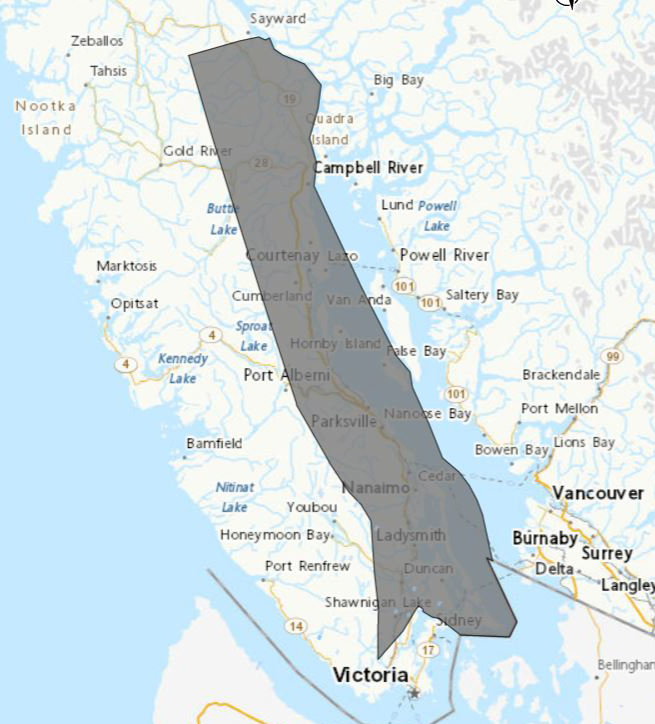Posted on: May 30, 2023
Environment Canada and the B.C. Ministry of Environment and Climate Change Strategy have issued special air quality statements for East Vancouver Island and the Southern Gulf Islands. These regions may be impacted by smoke from a Sayward area wildfire over the next 24 to 48 hours.
Islands. These regions may be impacted by smoke from a Sayward area wildfire over the next 24 to 48 hours.
Expect smoke conditions to be highly variable along the east coast of Vancouver Island as local winds change through the day.
During a wildfire, smoke conditions can change quickly over short distances and can vary considerably hour-by-hour. Wildfire smoke is a natural part of our environment but it is important to be mindful that exposure to smoke may affect your health.
Wildfire smoke can be harmful to everyone’s health even at low concentrations. Everyone can take action to reduce their exposure to wildfire smoke. People with lung disease (such as asthma) or heart disease, older adults, children, pregnant people, and people who work outdoors are at higher risk of experiencing health effects caused by wildfire smoke.
Speak with your health care provider about developing a management plan for wildfire smoke events and maintaining a supply of necessary medications at home and always carrying these medications with you during wildfire season.
Stop or reduce your activity level if breathing becomes uncomfortable or you or someone in your care feel unwell. Contact your health care provider or local health authority if you develop severe symptoms or need advice.
Check the Air Quality Health Index (AQHI) and monitor your symptoms. People respond differently to smoke. Mild irritation and discomfort are common, and usually disappear when the smoke clears. Drinking lots of water can help your body cope with the smoke.
If you have an HVAC system in your home, use the highest rated MERV filter for your system (ideally rated 13 or higher) and set the fan to recirculate air constantly. You can also use a portable High Efficiency Particulate Air (HEPA) air cleaner. Keep your doors and windows closed if the temperature in your home is comfortable.
For more information on current air quality, visit
www2.gov.bc.ca/gov/content/environment/air-land-water/air.
Visit www.airhealth.ca for information on how to reduce your health risk and your personal contribution to pollution levels, as well as for current and forecast AQHI values.